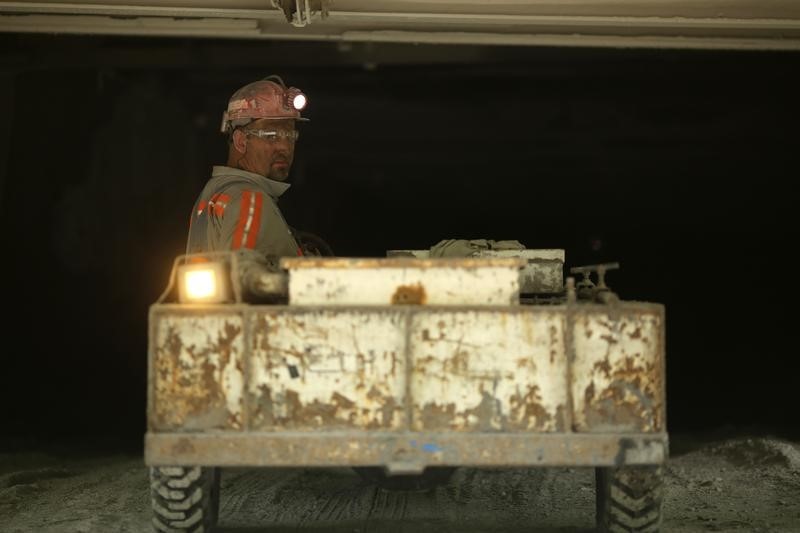By Clyde Russell
CAPE TOWN, Feb 6 (Reuters) - Africa's mining industry should be poised on the verge of great things, but instead it appears to be seeking a reset button as miners continue to clash with governments over how best to exploit the continent's resources.
Africa is home to large reserves of the metals essential to the battery revolution, such as cobalt and copper, and it is also rich in gold, iron ore, high-quality coal and uranium, to name a few.
But similar to last year, the Investing in African Mining Indaba conference in Cape Town was a litany of miners and ministers talking past each other this week, seemingly getting no closer to developing a consistent regulatory framework.
Of course, not every country in Africa is experiencing problems with its mining sector. There are success stories where companies, government and stakeholders such as labour and local communities have worked together.
Two of the continent's powerhouses, though, South Africa and the Democratic Republic of the Congo (DRC), are still mired in disputes that threaten to curtail the investment all sides say they want, boosting the risk that the continent is again left behind in the race to supply much-needed minerals to Asian demand centres.
There was no better example than the speech given by Anglo American 's AAL.L Norman Mbazima, the mining major's deputy chairman for South Africa, in which he said relations between the industry and the government there were at an "all-time low".
"We have anything but a conclusive regulatory environment," Mbazima said, referring to a situation where the mining industry is challenging the South African government's revised mining charter in the courts.
The problem is likely that Mbazima's words fell on deaf ears, or absent ears, as South Africa's Resources Minister Mosebenzi Zwane had already left the hall after delivering a speech that at best skirted the main issues facing the industry.
Miners in the DRC are also gathering strength for a showdown with the central African nation's lawmakers, opposing a new mining code that raises royalties and taxes on miners. DRC is the source of around 60 percent of the world's cobalt, making it the key jurisdiction in supplying the metal essential to batteries used in electric vehicles, storage units and many electronic devices.
Mark Bristow, the chief executive of Randgold RRS.L , told Reuters in an interview in London he expects the DRC government to agree to amend the mining code, passed last month by the country's Senate.
Bristow said miners operating in the DRC, such as Glencore GLEN.L , Ivanhoe Mines IVN.TO and China Molybdenum Co 603993.SS , were putting together a group to lobby against the changes, arguing that if they go ahead it will crimp investment.
MOUNTING FRUSTRATION
This is more or less the same path being trodden by South Africa's miners, as they attempt to limit the amount of equity they have to transfer to black investors under laws aimed at reversing decades of formalised racial discrimination that ended in 1994 with the first democratic elections.
The current mining charter requires that 26 percent of equity must be held by black investors, and this is proposed to rise to 30 percent.
But there are issues around what happens if the black investors sell their stake, and whether this means the company has to give more equity in order to maintain a certain level of black shareholding.
Executives from several miners and companies that provide mining services expressed frustration at the inability of the government to settle policy, provide regulatory certainty and then focus on building infrastructure to facilitate new or expanded mining projects.
At the heart of Africa's mining problems is a desire by governments to take a bigger slice of the pie as they see demand rising for the continent's minerals.
While policies may have initially been aimed on attracting investment with relatively generous tax and royalty regimes, governments are now more focused on changing the rules to extract more from the industry.
African nations are not alone in this, similar changes to laws have been implemented, or proposed, in countries such as Indonesia and Australia.
However, the issues have been dragging on for many years in Africa, and look set to continue to do so.
(Editing by Tom Hogue)
